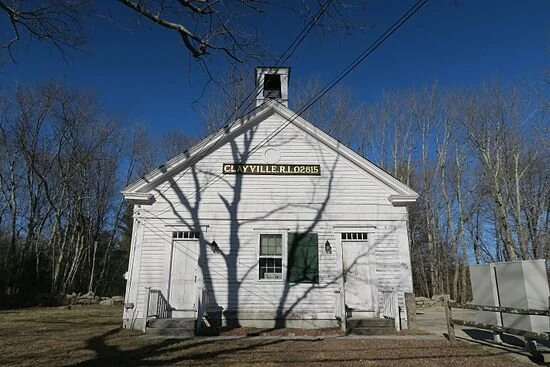Live off the land?
The Clayville, R.I. Post Office
From Robert Whitcomb’s Digital Diary, in GoLocal24.com
The last few days have seemed abnormally cold, and they certainly have been mostly gloomy.
But in fact temperatures have generally been at, or even a little above normal for most of the past few weeks. We’d been spoiled by the extraordinarily warm winter, and thus find the normally hesitant New England spring more depressing than usual. Well, yes, there’s the other thing, too…
The current emergency may be making far more people aware of early-spring Nature because far more are walking around outside to battle claustrophobia and to get exercise, partly because most gyms have been closed. But it’s not a very social experience, as, for example, people tend to keep on the other side of the street from fellow walkers. Still, at least they’re looking at the flowers and trees more than they might have in a “normal spring.’’
I’ve been thinking that this would be a good time to head up to New Hampshire and Vermont, get a room at a Motel 6 and check out maple-syrup-making operations for a few days. Yeah, COVID-19 will be circulating up there too but the scenery is therapeutic.
An old friend of ours who lives in Florida part of the year has several dozen acres of field and woods in the Clayville section of Scituate, R.I. She only half-jokingly suggested that she’d move full time back to Clayville and “live off the land,’’ as people there (mostly) did 250 years ago. It wasn’t that long ago, historically speaking, that many of our ancestors lived on farms. My maternal grandfather’s family had a couple of farms in Upstate New York, and even some of my New England ancestors in the great-grandparent generation had working farms in Massachusetts. Those who didn’t might have had a couple of cows and some chickens.

